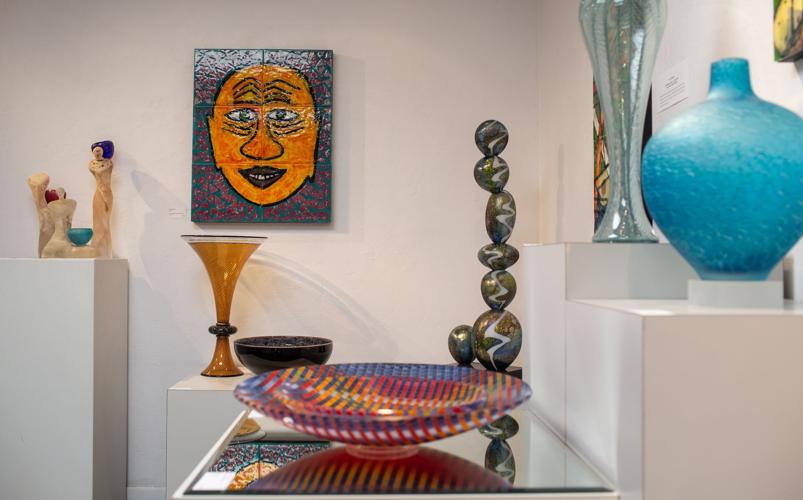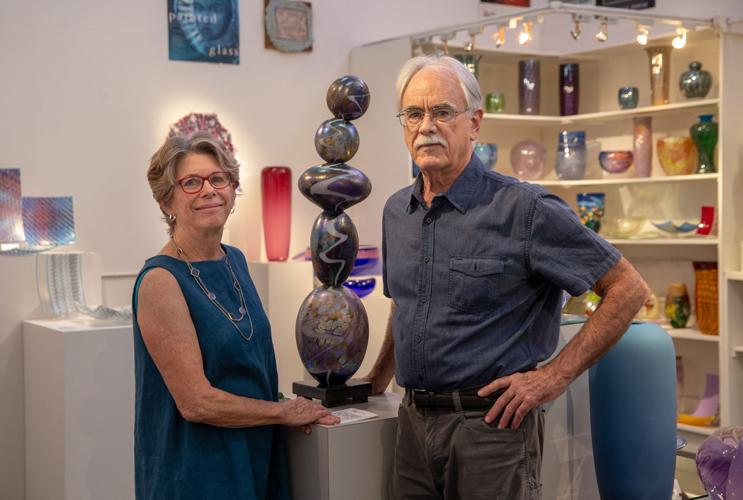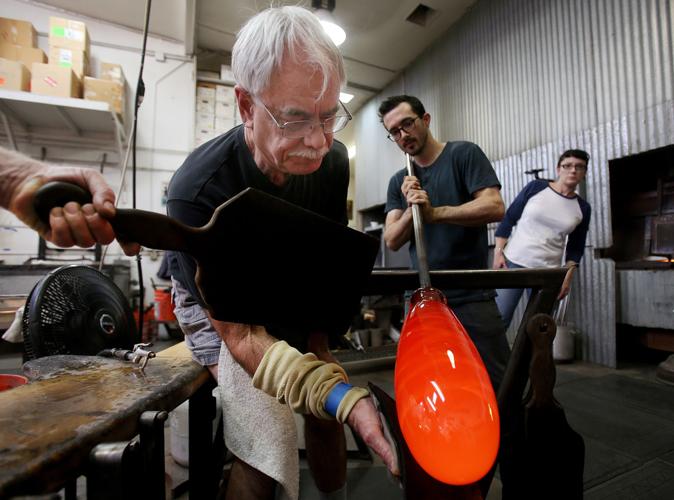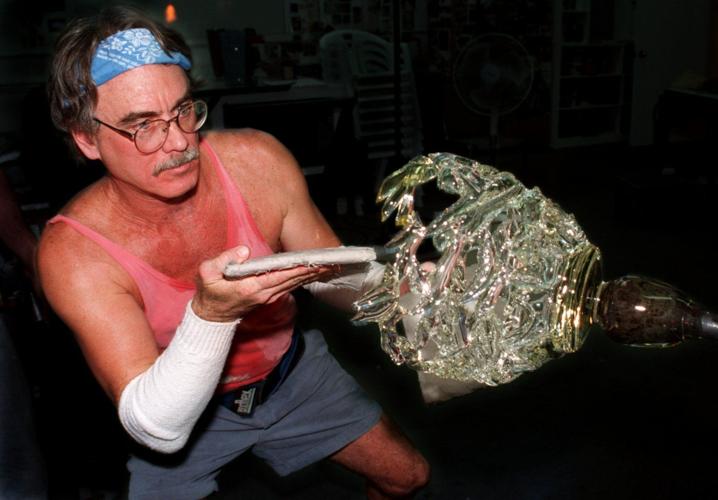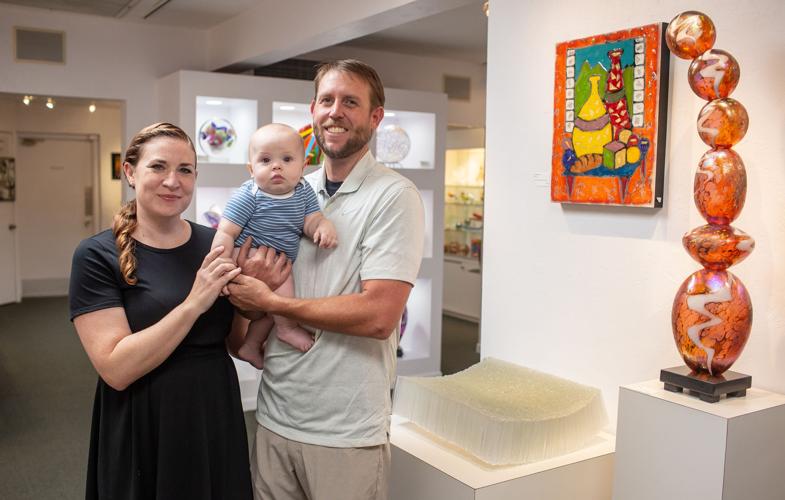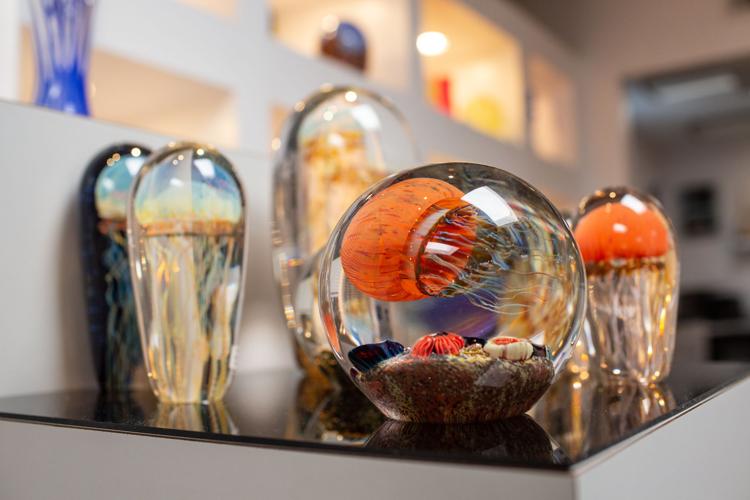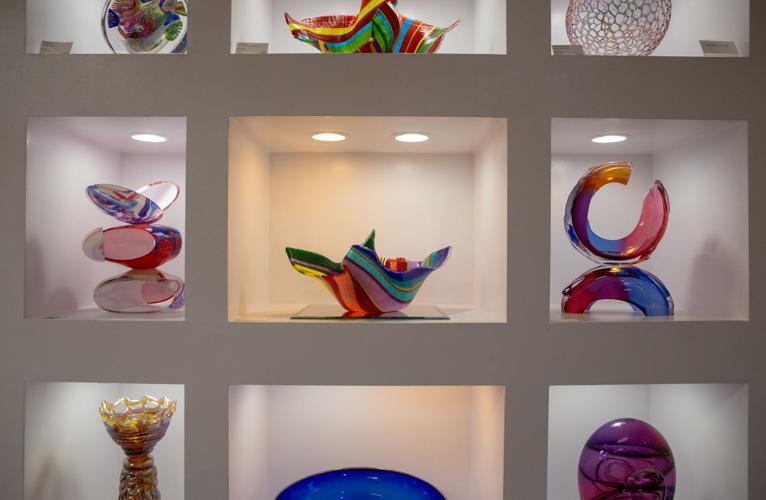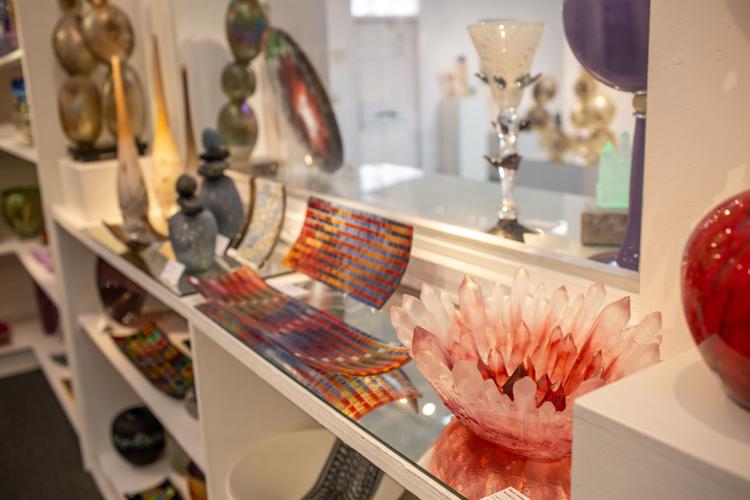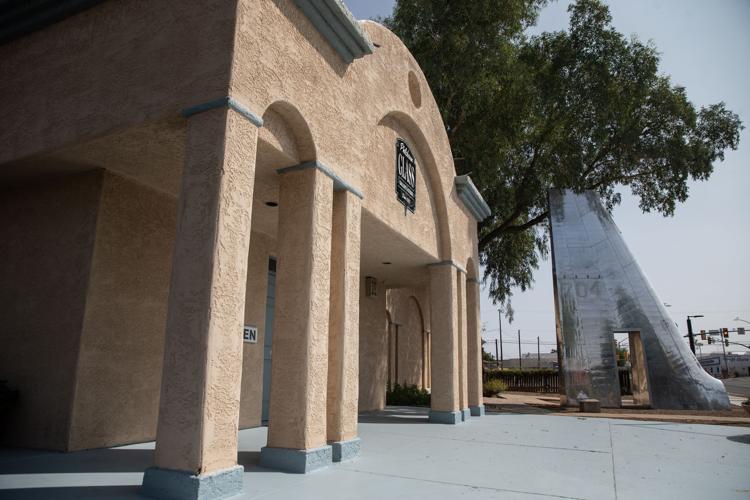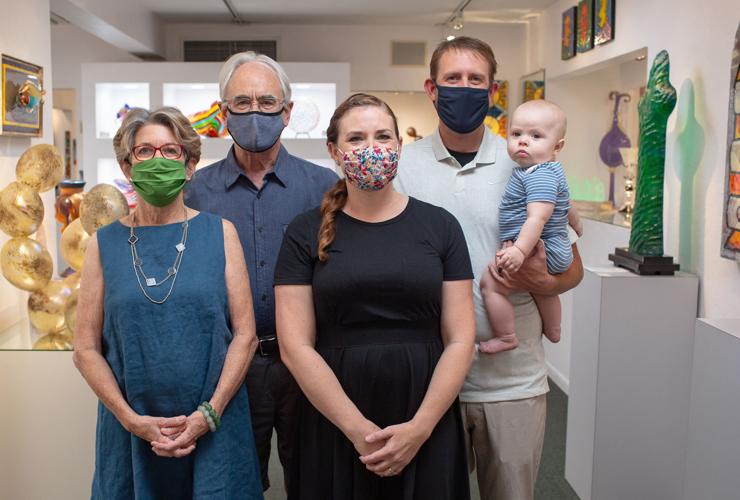In the corner of his downtown glass studio, Tom Philabuam, 73, has a cabinet covered with weathered, fading photos.
Among them is a black and white photo of his younger self standing on a beach in England, blowing into a trumpet. Another shows an amoebalike ceramic piece he made years ago. He probably relates more to the first photo; it represents how he feels today — energized and creative — as he officially retires from running his downtown glass art studio.
On Oct. 1, Philabaum came full circle when he sold his 38-year-old glass art business. For the first time since those aged photographs were taken, he will be free to create purely for pleasure with no commissions or business projects to slow him down.
And for the first time in the nearly four decades since he opened his namesake gallery, he won’t have to wake up early and worry about the business of art; he can now focus solely on the making of it.
He’s leaving the business details to his longtime manager Alison Harvey, who after 10 years of working alongside Philabaum is taking it over.
She and her husband, Dylan, bought the business from Philabaum, giving him no more excuses to act on the plans he announced two years ago to retire.
“What retirement?” Philabaum said with a laugh. “Once you’re an artist and you own your own business you never really retire. I was 71 – I was supposed to be full-time retired – well, that was three years ago.”
Days before the sale became final, Philabaum walked through the gallery, pointing to where visitors used to sit and watch him as he would mold, bend and transform viscous, 1,200-degree glass at the end of a metal rod. He sold his 500-pound furnace when he announced his retirement two years after he was diagnosed with Parkinson’s disease, so part of the old hot shop has been transformed into additional gallery space.
“(I’m) reinventing myself as a painter,” he said. “I’ll be 74 in the spring, so I have to start downsizing and doing something with all this crap before I kick the bucket and leave it with all for my kids to deal with. I’m probably gonna give a lot of my work to the Tucson Museum of Art.”
Philabaum put Southern Arizona on the map for glass art. From the mounted glass flowers on the wall of the University of Arizona’s Highland Market to flying carpets hanging from the ceiling at the Tucson airport, his art is admired and praised by many.
Pedestals, shelves and display cases with more than 500 glass sculptures fill the 2,500-square-foot downtown gallery that was once home to a Tastee Freez fast-food restaurant. By the building’s exterior, you’d never know that such rich, vibrant art was living inside, like an unassuming wooden chest filled with glittering gems.
“My favorite part is when the door opens and their mouths drop when they walk in the door,” Philabaum said of the gallery’s visitors. “I would say that one of the nicest surprises in the city of Tucson is the Philabaum Glass Gallery.”
Sun beaming in from the skylights across from the bustling arts warehouse district on North Sixth Avenue reflects off of glass sculptures from over 50 artists across the country. Philabaum and his wife, Dabney, still own the building that houses the gallery at 711 S. Sixth Ave. The Harveys will be leasing the building from them.
In her element
“I am hoping that Alison and Dylan will infuse the gallery with a fresh energy and a spark of creativity that will continue to bring people to our business,” Philabaum said. “The only other option was we kept going until I dropped over, but I couldn’t leave my wife and my kids with all the stuff. So, when Alison said she wanted to take it over we were thrilled.”
“Tom is leaving a large legacy behind,” said Harvey, a mother of three — ages 7 months, 3 and 5. “Without Tom, glass in Tucson wouldn’t be the same. It’s big shoes to fill.”
On a recent afternoon as faint opera music played in the background, Harvey’s eyes lit up with excitement as she gave a tour of the maze-like gallery. She’s in her element, both figuratively and literally.
“Glass is my favorite,” said Harvey, who earned an art history degree from the University of Arizona, “We all kind of understand how to apply paint to a canvas or how a pot is thrown, but with glass there is always a unique mystery.”
She described the intricate “tapestries” that teeter on precarious-looking edges throughout the gallery. Each is created over the span of multiple days using 9,000 individual fibers of layered glass.
“Glass begs to be touched,” she said. “I love how glass sometimes feels alive and sometimes it feels like a moment frozen in time.”
“I knew right when I started here that I never wanted to do anything else,” she added. “It is such a special place and this beauty needs to be carried on. It was too special to let it close.”
Counting blessings
Philabaum said he is excited to begin creating art as he enters his “real” retirement. He can no longer work with glass — his Parkinson’s makes it impossible to have the steady hands needed to work with burning hot material. Instead, he is focusing on fused glass collage paintings, which he has been creating for the past couple years since his diagnosis.
“One way you discover you have Parkinson’s is when you develop tremors in your hands and that’s where it first started,” he recalled. “The biggest challenge was recognizing the fact that I had to change my lifestyle.”
Philabaum said he has accepted his disease as part of his life and has adapted to his new physical limitations.
“Parkinson’s has really just shown me humility. I’m just trying to keep it in perspective,” he said. “You have to count your blessings.”
“It’s pretty weird. It’s been my life,” Philabaum said. “And it’s really been a good ride; I traveled the world, met all kinds of interesting people. Having an art gallery and being a producing artist was a trick to pull off; it required lots of long days and long nights seven days a week.”
According to Harvey, that commitment from Philabaum is evident.
“Everybody who comes in here leaves happy,” Harvey said. “This place is filled with passion and beauty and it’s a family-run business. It speaks to what Tucson is.”


